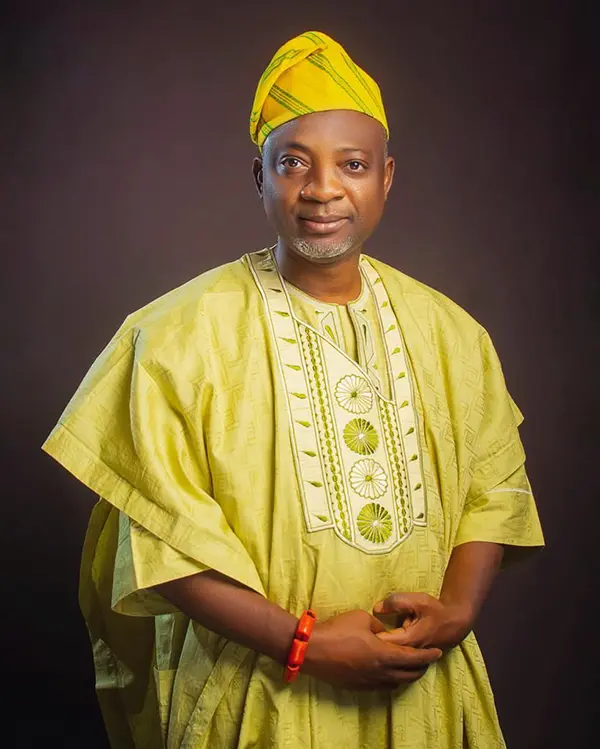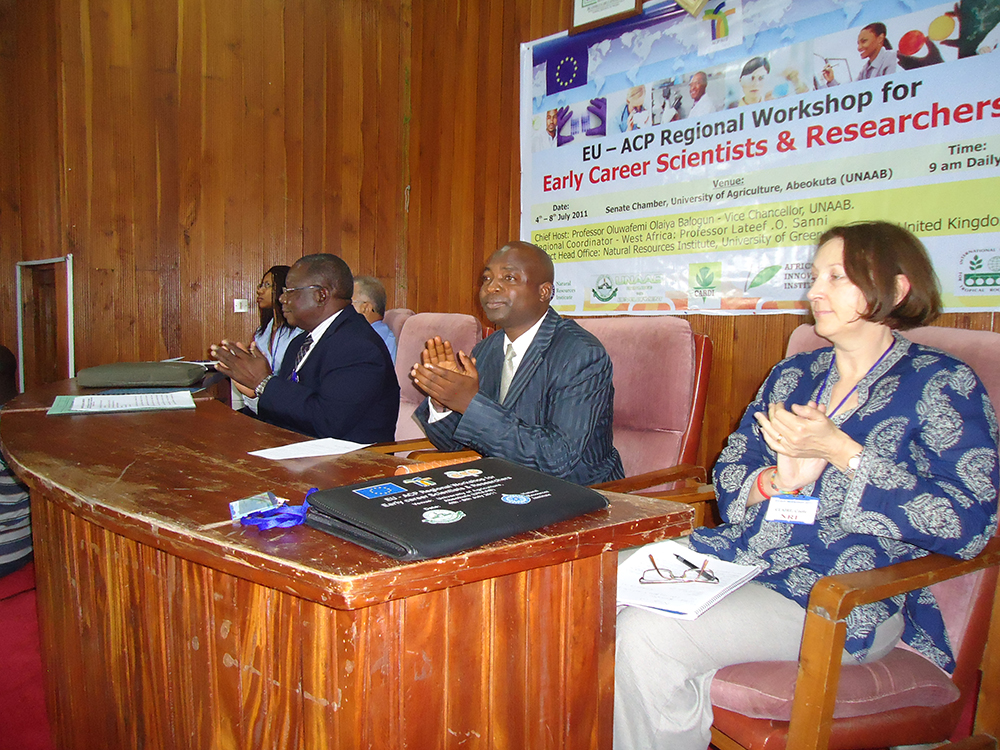
When Professor Lateef Sanni first arrived at the Natural Resources Institute (NRI) in 1995 on a World Bank-funded academic placement, he never imagined that nearly three decades later, he would be returning to receive one of the University of Greenwich’s prestigious honours, an honorary doctorate in recognition of his contributions to agricultural research, food security and capacity building across Africa.
‘It was a “wow” moment,’ he recalled, describing the call that informed him of the honour. “I never imagined something like this. It’s rare to have this kind of grace.”
A career rooted in agriculture and mentorship
Raised in an agricultural household in Nigeria, where his mother sold yam and beans to support the family, Professor Sanni was drawn into agricultural sciences by an uncle, setting him on a path from which he has never looked back. His passion for food science was cemented at university and deepened through his early work, and later, his experience at NRI.
His first visit to NRI in 1995 marked a turning point. Supervised and ‘wonderfully mentored’ by Professor Andrew Westby, Professor Sanni found a professional home that would become foundational to his growth as a scientist, leader, and mentor. ‘Coming to NRI was the pivot that defined my career,’ he said.
Today, Professor Sanni is not only an internationally recognised researcher. He is a consultant to the International Institute of Tropical Agriculture (IITA) and former Deputy Vice Chancellor at the Federal University of Agriculture, Abeokuta (FUNAAB). Professor Sanni is currently Executive Director of the Nigerian Stored Products Research Institute (NSPRI). He is also a passionate mentor who has guided countless early-career scientists, some of whom have gone on to become vice chancellors and senior researchers in their own right.
A transformational partnership
Lateef’s long-standing collaboration with NRI has spanned transformative projects such as C:AVA (Cassava: Adding Value for Africa), GRATITUDE (Gains from Losses of Root and Tuber Crops) and Science and technology for enhancing the contribution of Tropical Root Crops to development in ACP countries . Many of these were implemented in partnership with institutions like IITA and research institutes in other African and Asian countries. These projects contributed to Africa’s cassava transformation agenda, linking research with practical solutions and unlocking opportunities for farmers, processors, policymakers and businesses.
Through C:AVA, for example, training and research interventions helped boost cassava yields in countries like Nigeria, Ghana, Malawi, Tanzania, and Uganda from 8–10 to 20–25 tonnes per hectare. The project supported the uptake of high-quality cassava flour by local industries and influenced government policy, including a mandate to include up to 20% cassava flour in wheat-based products, a key step towards transforming the cassava value chain in these countries.
In addition, Professor Sanni credits NRI with creating lasting infrastructure improvements in Nigeria. ‘One of the projects provided $180,000 to upgrade a gari processing facility in the FUNAAB Industrial Processing Unit,’ he explains. “This is what I call industrial hope — research that delivers beyond the lab.”
A model for partnership

Asked what makes NRI a unique partner, Professor Sanni was quick to answer: ‘Transparency, mutual respect, and high-quality of science.’ He also highlighted NRI’s commitment to training and capacity building. ‘The budgets on the projects I’ve worked on with NRI grew over the years and supported infrastructure and equipment at African institutions.’
His collaborations have been a model of how North-South partnerships can be both equitable and impactful. ‘You cannot remove North-South collaboration and mentoring from research success,’ he said. ‘We learn so much from each other.’
Looking ahead: The future of African-led research
As he reflected on his career, Professor Sanni is most proud of the people he has mentored, the quality of his research, and the global network he has helped build. He sees mentorship not as an add-on but as a legacy. ‘This recognition motivates me to remain productive, to continue serving humanity, and to nurture others.’
Despite the challenges, particularly the lack of continuity in policy and infrastructure for science in Africa, he remains hopeful. ‘There is great hope for African-led agricultural research. I appeal to NRI not to relent but to increase momentum to spur a new wave of technology transfer in Africa.’
A Second Home
As the University of Greenwich prepares to confer its honorary degree on 24 July, Professor Sanni offered his heartfelt appreciation to the NRI team. ‘I consider NRI my second home,’ he said. ‘I am profoundly grateful.’

